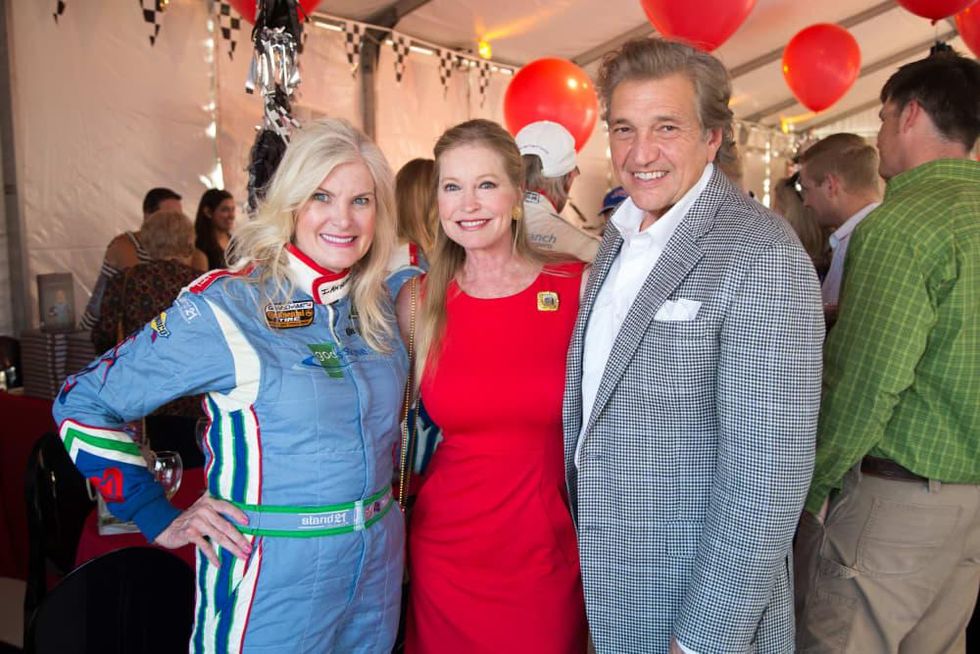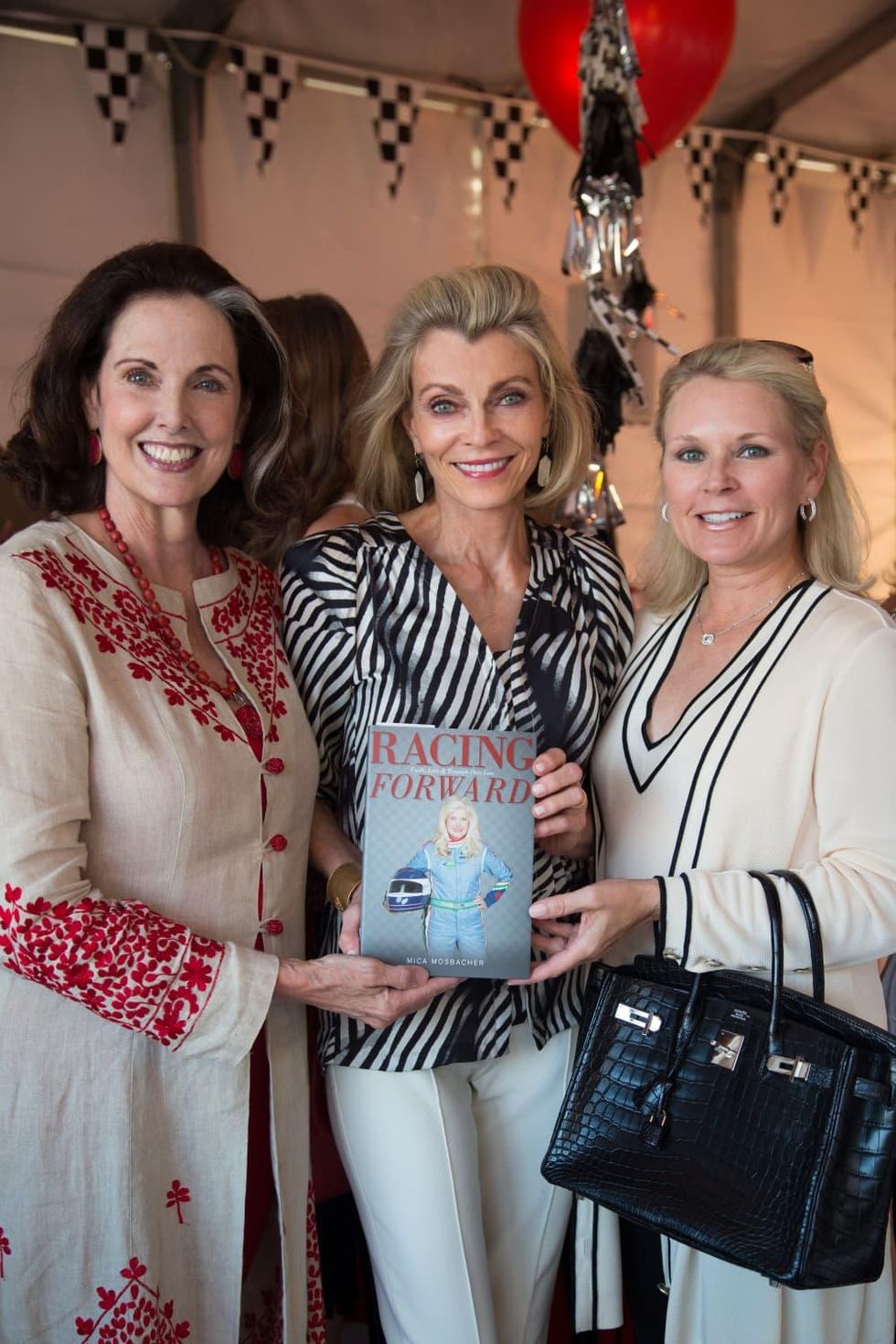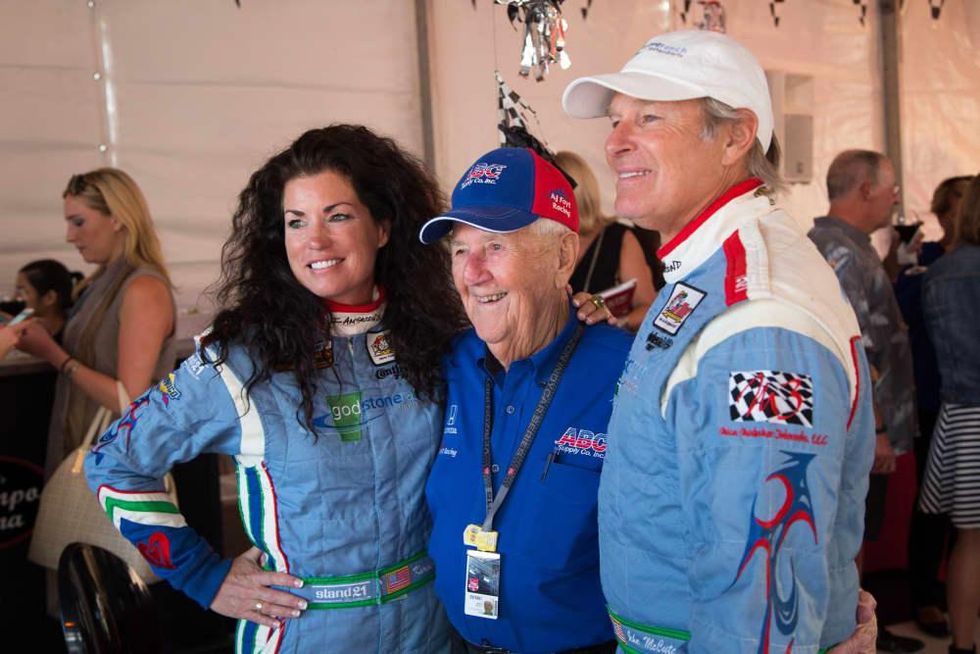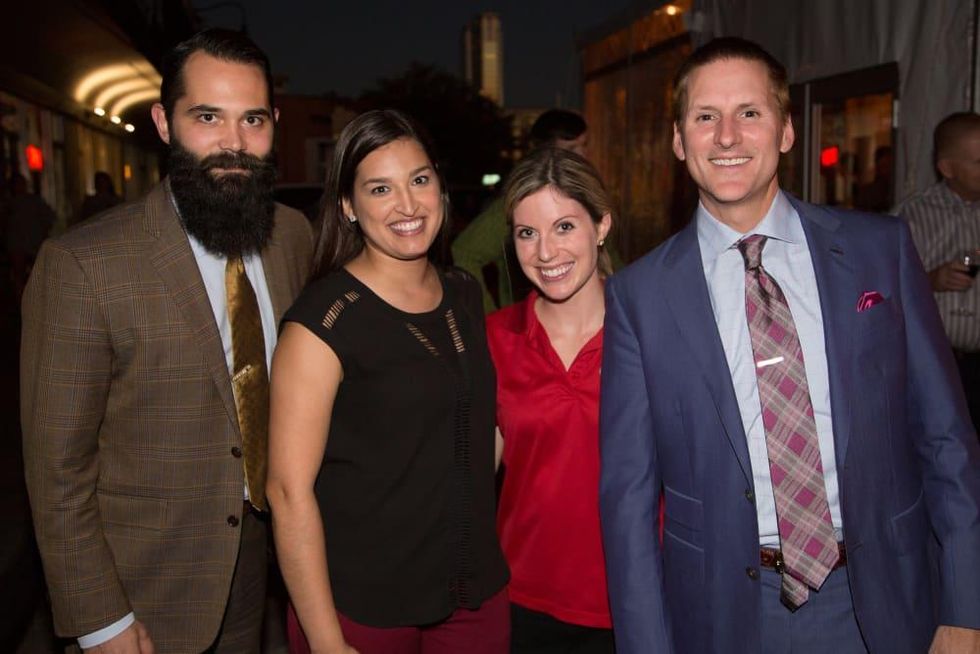Thank heavens the skies played nice for the 2024 Bayou Bend Fashion Show and Luncheon at Bayou Bend Collection and Gardens on Friday, April 12. Rain earlier in the week might not have been the best news for the al fresco midday gathering presented by Neiman Marcus. And yet, the sun was smiling as the ladies — and a dozen or so gents who love them — stepped out in their spring best to benefit the Museum of Fine Arts, Houston home for American decorative arts and paintings.
At the helm of the au courant entourage were chairs Janet Gurwitch and Meredith Flores Barker. Gurwitch, in a classic off-white jacket kissed by real orchids, and Flores, in a pink floral top gracefully paired with bold fuchsia slacks, welcomed inquisitive fashionistas for the seventh iteration of the event, once again underwritten by The Galleria and Simon Properties. Many repeat local luminaries were on the scene, among them an Astros-affiliated quartet — model and actor Kate Upton, broadcaster Julia Morales,Whitney Crane, and Rachel Bagwell.
Gurwitch, who was inducted into the Texas Business Hall of Fame in November, agreed to chair the event only if she found a dynamic and fresh counterpart with a passion for the arts and the museum. Enter Sotheby’s real estate agent and social influencer Flores Barker, whose zest for philanthropy is evident in supporting charities like Houston Arts Alliance and Citizens for Animal Protection.
Elegance and sophistication were on display as tinkling of glasses and soft chitchat from a mélange of Houston’s social scene —from those who have been there, done that, to those dipping their toes into the wondrous world of fundraisers — lingered under the stunning tented garden.
Eyes were locked on the runway as a Zimmermann yellow V-neck maxi dress made its debut, followed by creations from Giambattista Valli, Monique Lhuillier, and Oscar de la Renta. Meandering from radiant lime greens and bold corals, the 45 curated styles also offered subtle chic looks courtesy of two Tom Ford numbers: an ivory belted jumpsuit and a silk evening gown with gold beading. For occasions calling for living loud and proud, one could opt for the Dolce and Gabbana floral jacket and pant set.
Catering by City Kitchen enticed with a chilled white asparagus soup with white truffle oil, lump crab salad with artichokes, and grilled chicken with apricot-rosemary mostarda accompanied by red quinoa and haricots verts. A refreshing trio of sorbets with berries and a shortbread cookie completed the lovely repast that raised $370,000 for the museum.
Among the 210 fashionistas on the scene were Cynthia Wolff, Carey Kirkpatrick, Karen Farber, Fady Armanious, Liliya Kades, Nicole Romano, Gwen McMurrey, Irma Castor, Jenny Harris, Mindy Hildebrand, Megan Ryan, Christine Stevens, Michelle Bramblett, Phoebe Massey, Lexi Sakowitz Marek, Lily Schnitzer, Gillian Sarofim, Joan Schnitzer, Michelle Hevrdejs, Anne Duncan, Jeanie Kilroy Wilson, Sharyn Weaver, Laura Arnold, Jennifer Segal, Elyse Lanier, Aliyya Stude, Anne Chao, Carolyn Chao Sabat, Kathy Leigh, Krissi Reid, Polly Bowden, and Sima Ladjevardian.
























